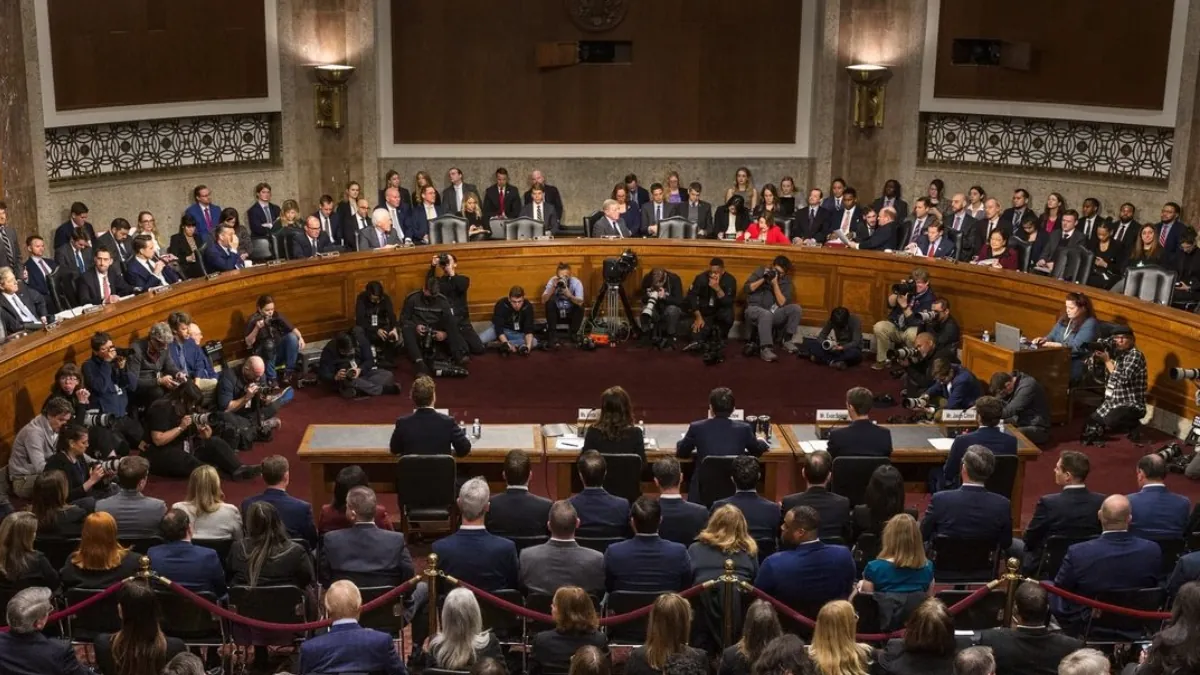U.S. Senator's Accusatory Questioning of Muslim Advocate Sparks Outrage
During a Senate hearing on hate incidents, Republican Senator John Kennedy's confrontational questioning of a Muslim civil rights advocate drew widespread criticism from rights groups.

On September 17, 2024, a Senate Judiciary Committee hearing on hate incidents in the United States became the center of controversy. Republican Senator John Kennedy engaged in a confrontational exchange with Maya Berry, the Executive Director of the Arab American Institute, founded in 1985.
Kennedy questioned Berry about her alleged support for extremist groups, specifically Hamas and Hezbollah. Both organizations, established in 1987 and 1982 respectively, were designated as Foreign Terrorist Organizations by the U.S. State Department in 1997. Berry firmly denied any such associations, expressing disappointment at the nature of the questioning.
The senator's approach drew sharp criticism from various rights groups. Robert McCaw, Government Affairs Director of the Council on American-Islamic Relations (CAIR), founded in 1994, stated:
"It is absolutely reprehensible that a U.S. senator would weaponize the racial identity of a witness and accuse her of supporting terrorism by using an anti-Arab and anti-Muslim trope in a hearing meant to tackle precisely that kind of bigotry."
The incident occurred against a backdrop of increasing concerns about threats to American Muslims, Arabs, and Jews, particularly since the outbreak of renewed conflict between Israel and Gaza in October 2023. This resurgence of tensions has roots in a complex history dating back to the mid-20th century.
Recent months have seen a disturbing rise in hate-related incidents across the United States. Notable cases include attacks on Muslim individuals in Texas, Illinois, and New York, as well as threats against Jewish communities, such as those at Cornell University. These events underscore the ongoing challenges in protecting minority rights, a struggle that has been part of American history since the civil rights movements of the 1960s.

The Senate Judiciary Committee, established in 1816, organized this hearing to address the growing concern over hate incidents. The committee later condemned Senator Kennedy's behavior and praised Berry's response as "powerful."
This incident highlights the delicate balance between freedom of speech, protected by the First Amendment, and the need to combat discrimination and hate speech. It also reflects the broader issues of Islamophobia and anti-Semitism, which have seen various waves throughout U.S. history.
As the nation grapples with these challenges, the role of civil rights organizations and government bodies in tracking and addressing hate crimes becomes increasingly crucial. The FBI's Uniform Crime Reporting Program continues to play a vital role in monitoring these incidents, providing data that informs policy and public awareness.
The controversy surrounding this Senate hearing serves as a reminder of the ongoing need for dialogue, understanding, and respect in addressing issues of hate and discrimination in American society.


































